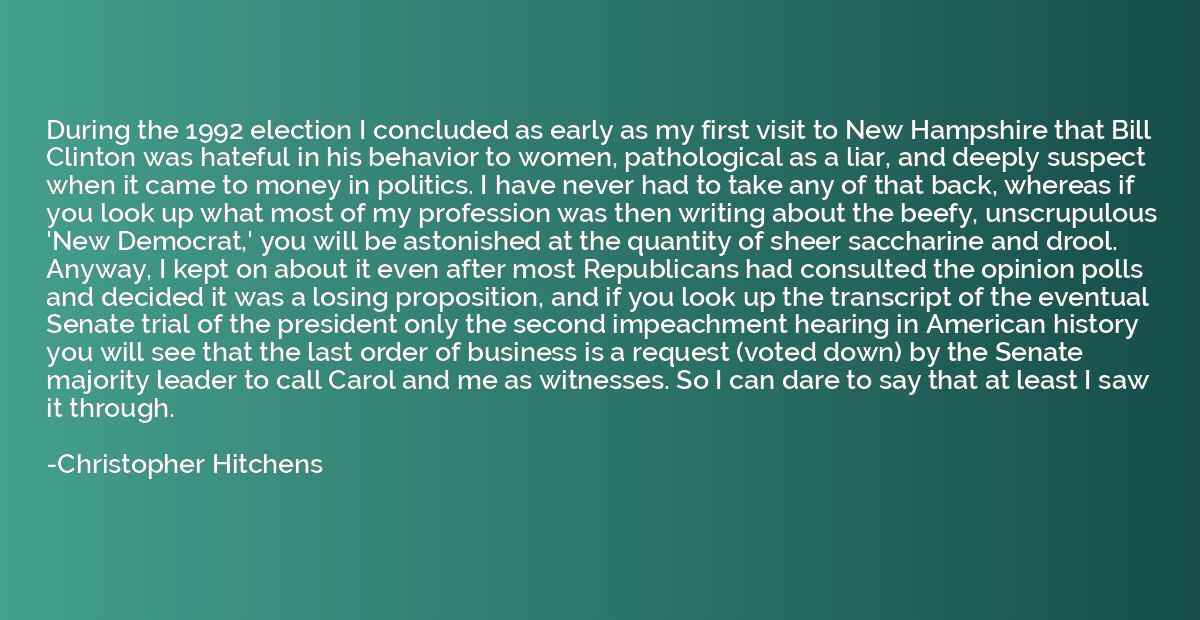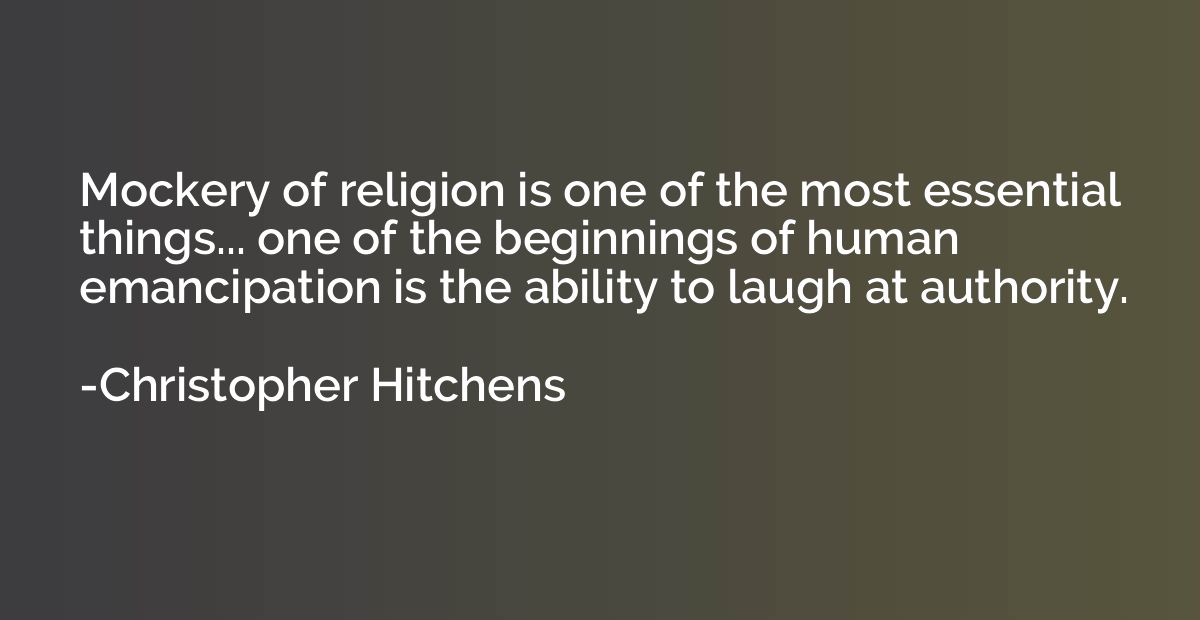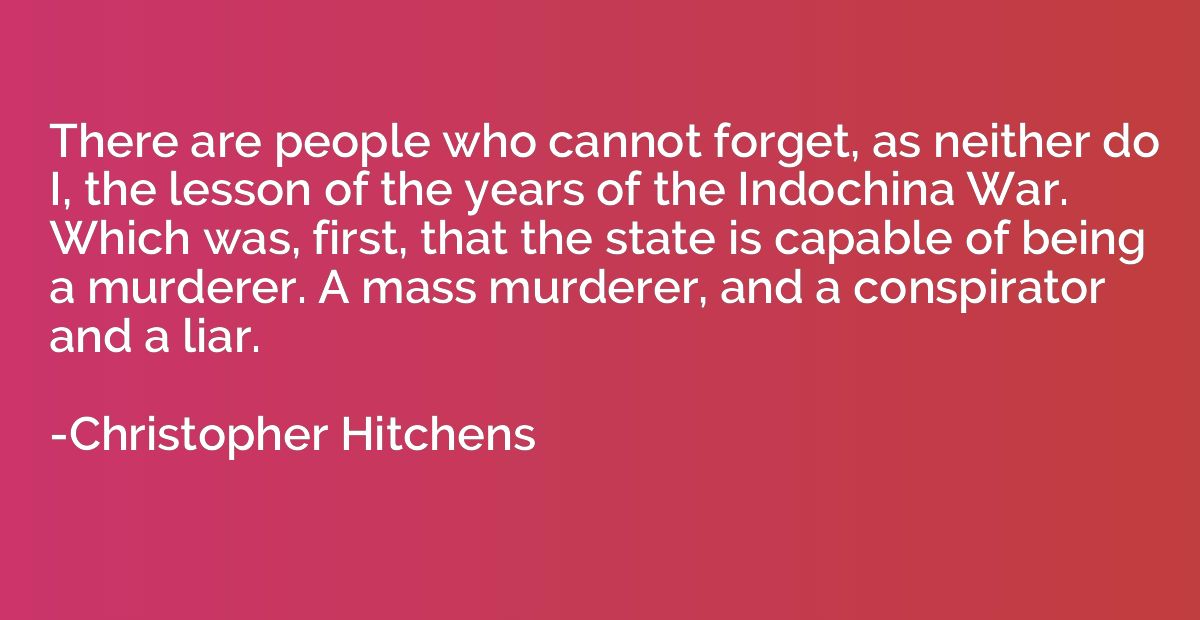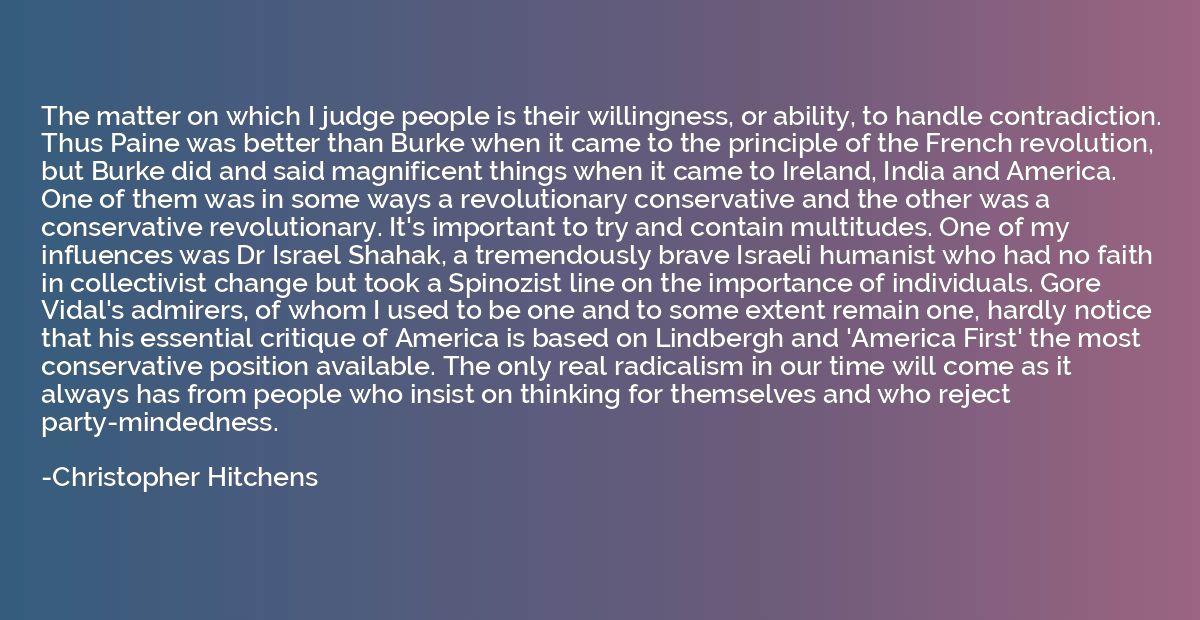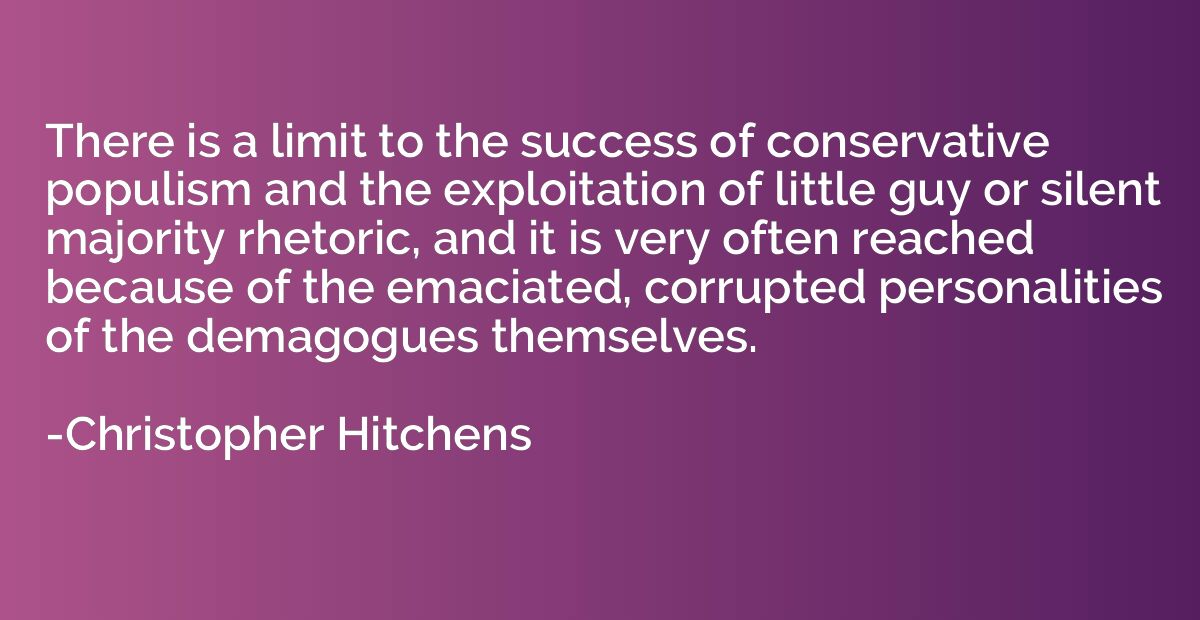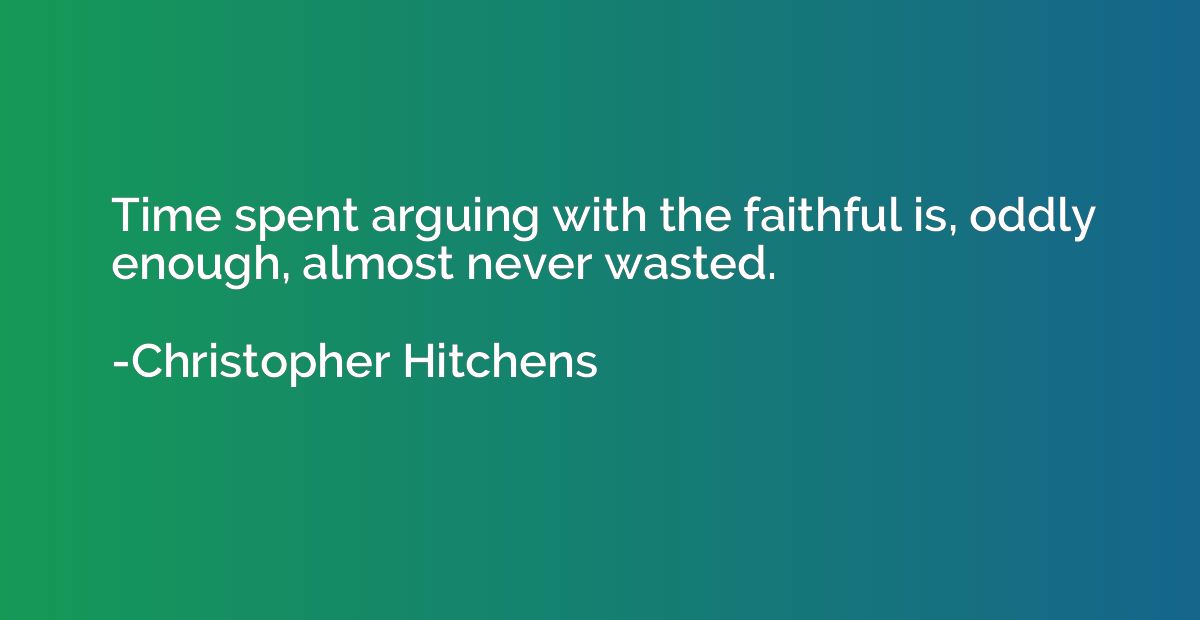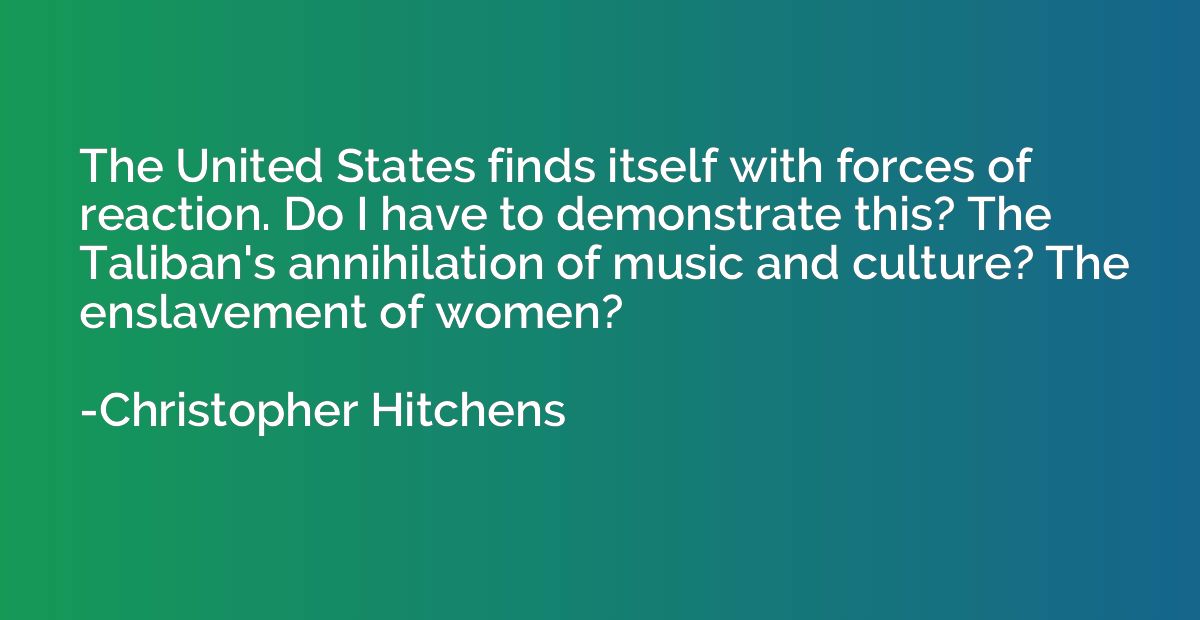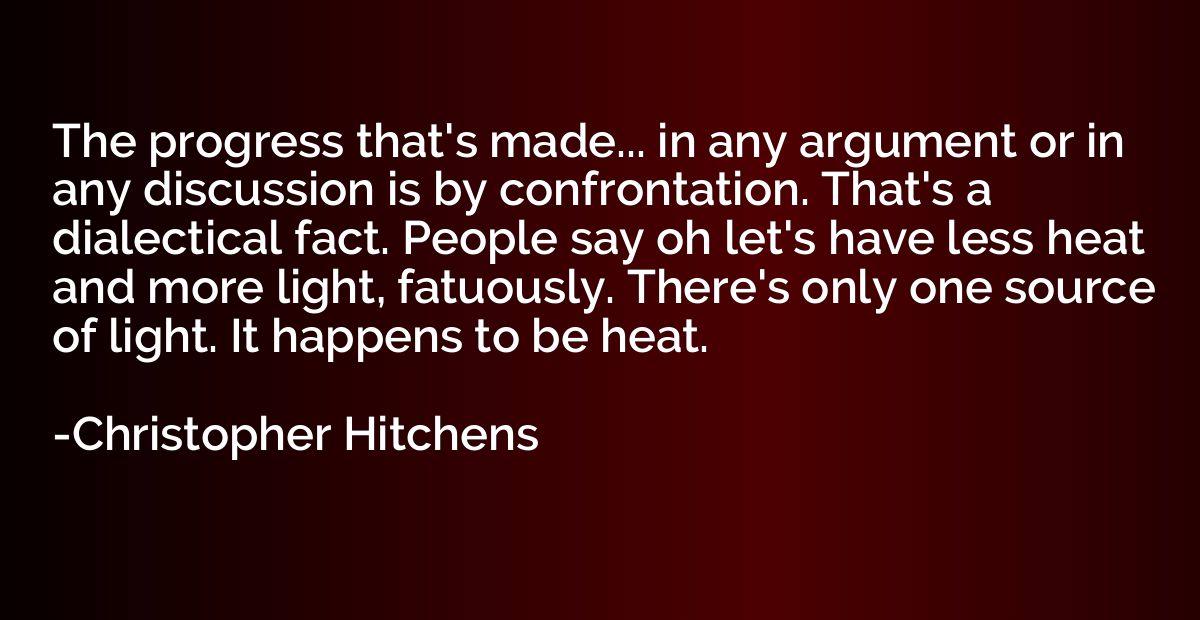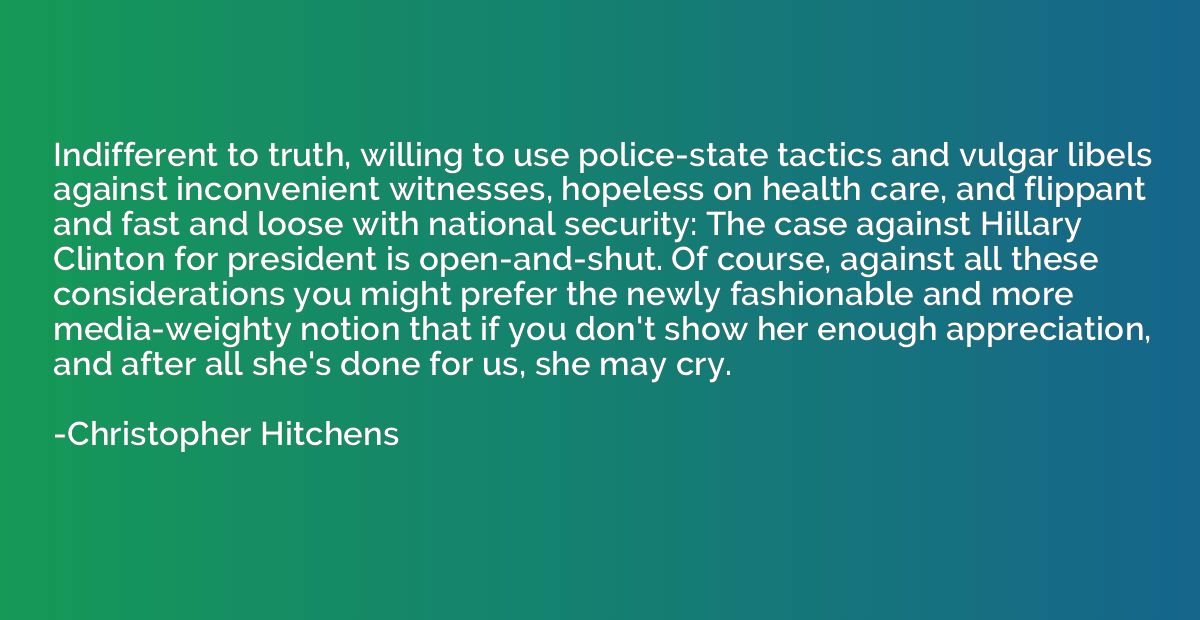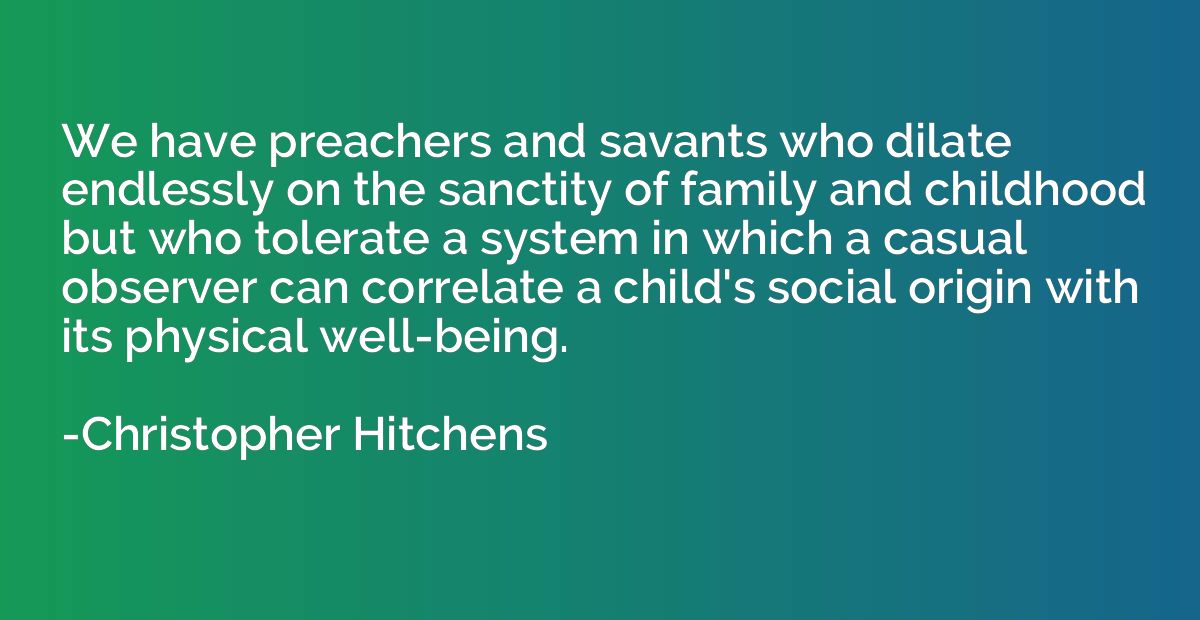Christopher Hitchens Quotes
A collection of quotes by Christopher Hitchens.
Christopher Hitchens (1949-2011) was a highly influential British-American author, journalist, and public intellectual. Known for his sharp wit, fearless criticism, and contrarian views, Hitchens greatly contributed to political and cultural discussions throughout his career.
Born in Portsmouth, England, Hitchens attended the prestigious Balliol College, Oxford, where he became involved in left-wing politics and developed his writing skills. In the late 1970s, he moved to the United States and began working as a correspondent for various publications, including The Nation and Vanity Fair. He established himself as an incisive and bold writer, tackling a wide range of topics such as religion, literature, history, and foreign policy.
Hitchens gained notoriety for his outspoken atheism and criticism of organized religion, particularly in his book "God Is Not Great: How Religion Poisons Everything." He was a fervent advocate for secularism, freedom of expression, and human rights. Hitchens also strongly opposed totalitarian regimes and was an ardent supporter of the Iraq War, a stance that was met with both admiration and criticism.
Throughout his career, Hitchens authored numerous books, including "Letters to a Young Contrarian" and "Hitch-22: A Memoir." He was a regular contributor to various media outlets and engaged in lively debates and discussions on television and in public forums.
Christopher Hitchens passed away in 2011, leaving behind a profound intellectual legacy and a reputation as one of the most influential and controversial thinkers of his time.
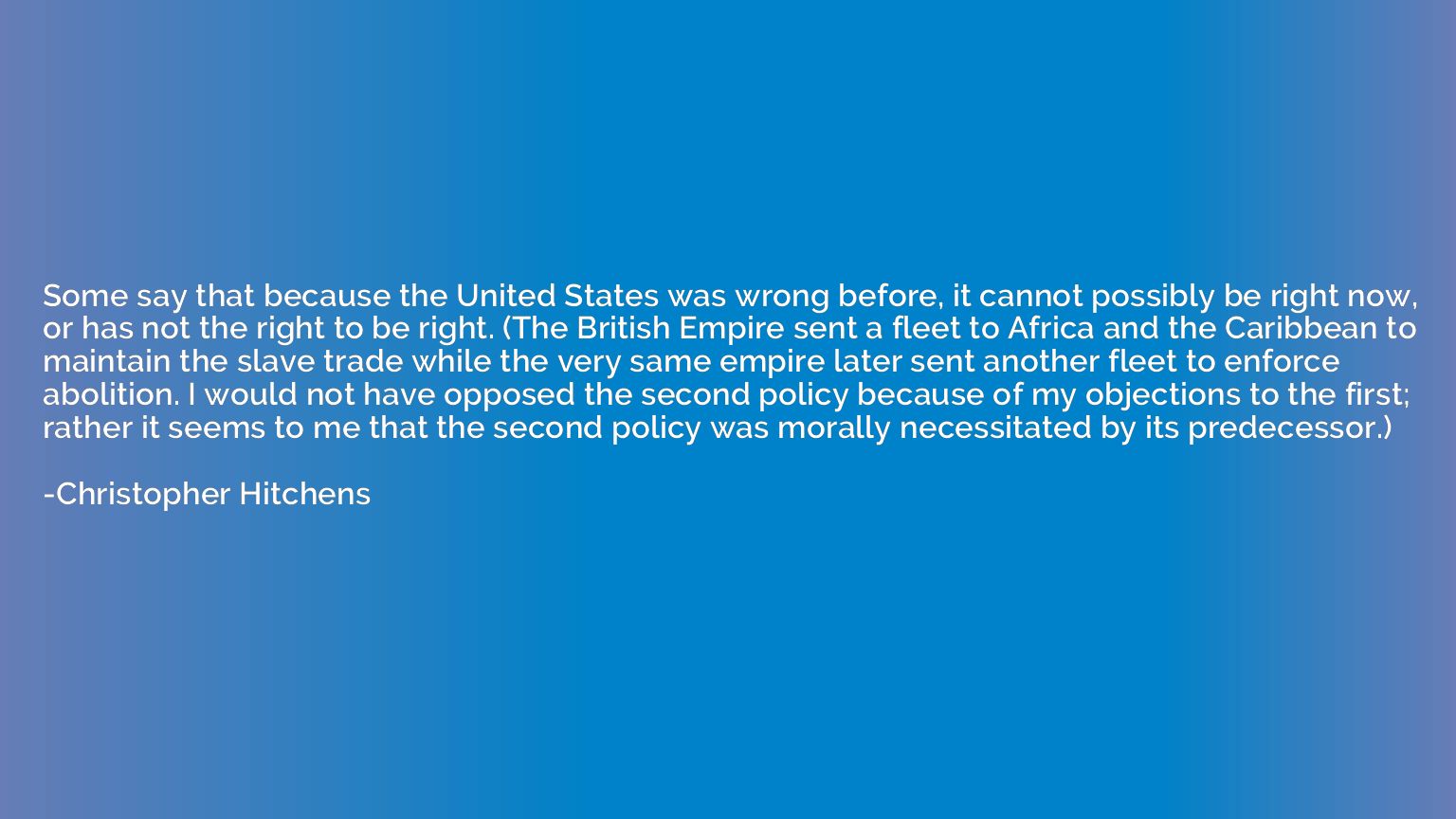



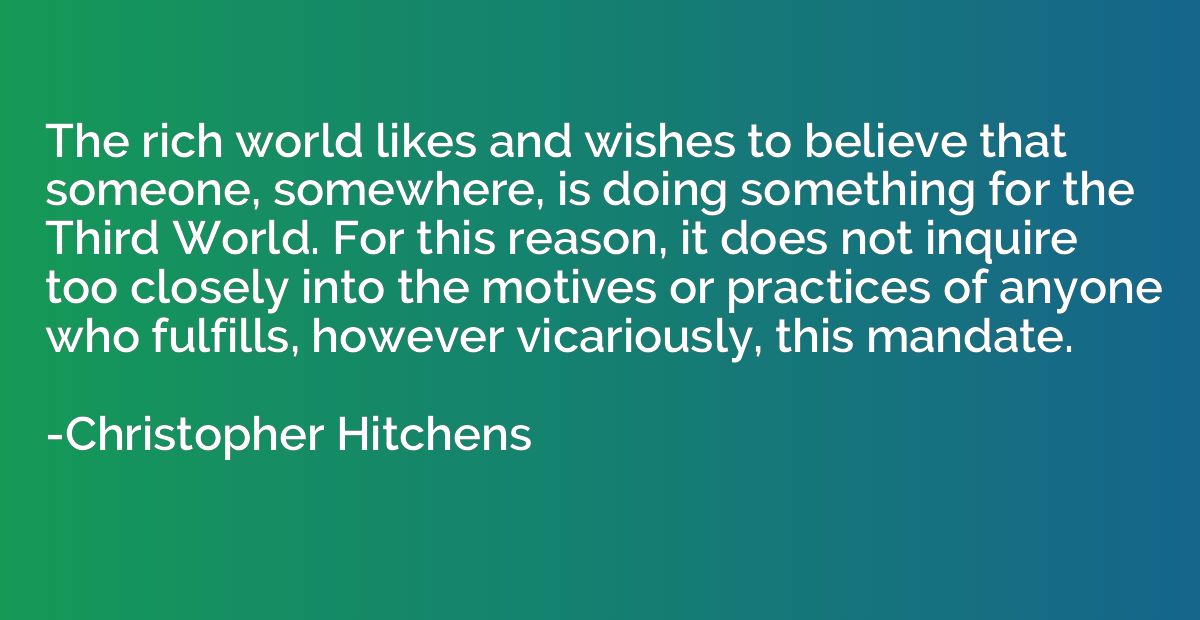
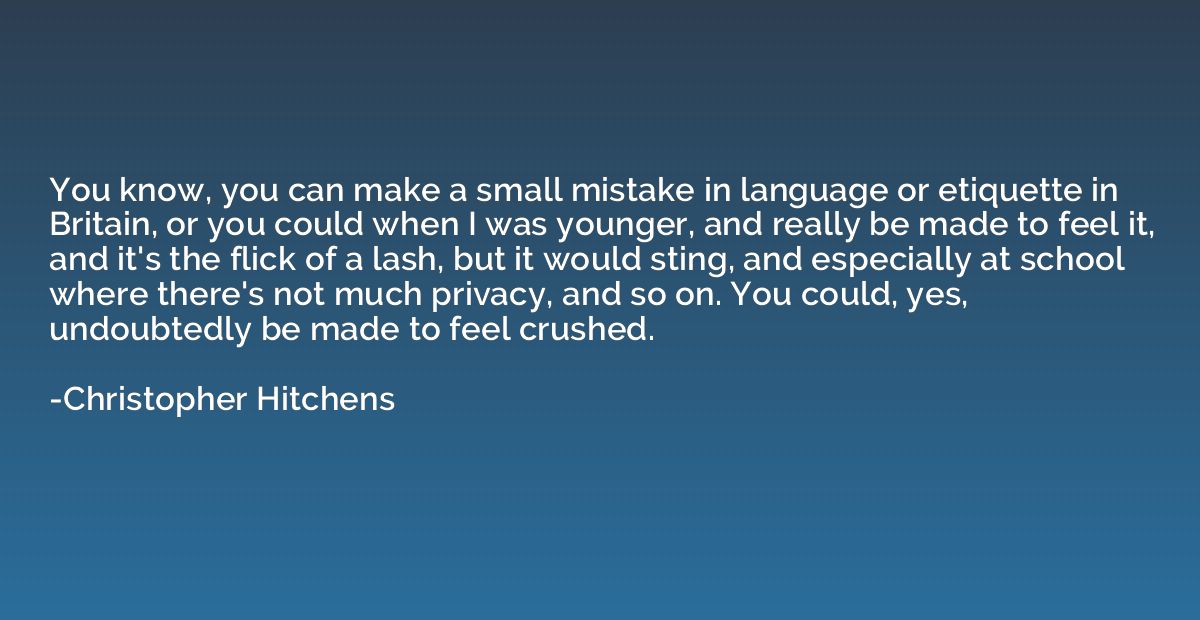
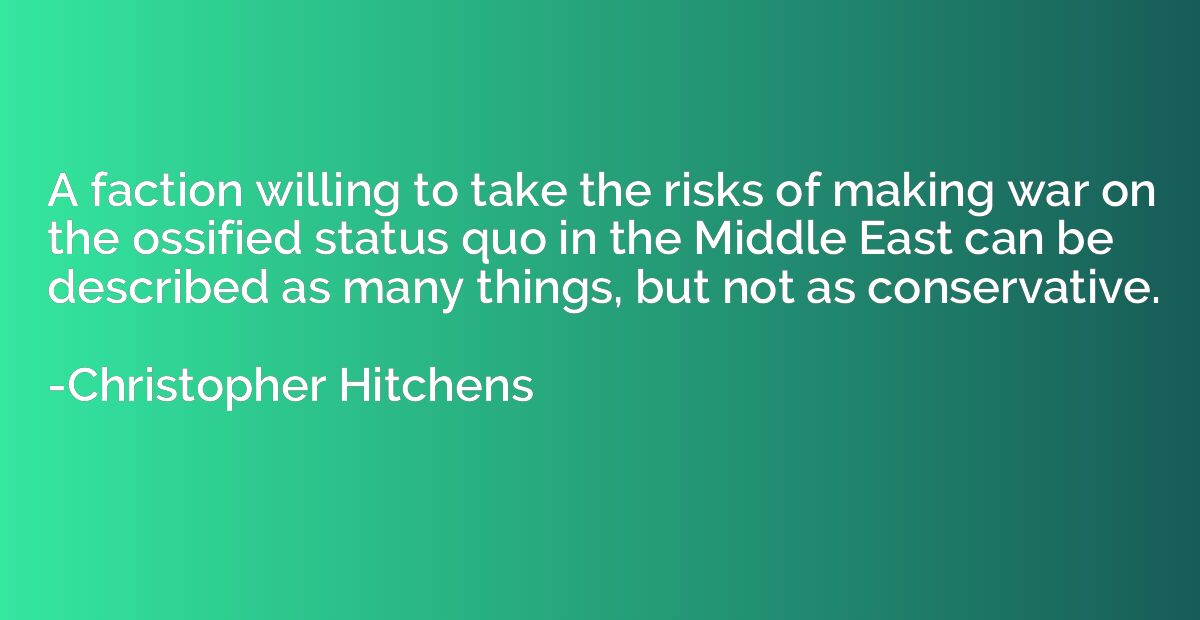
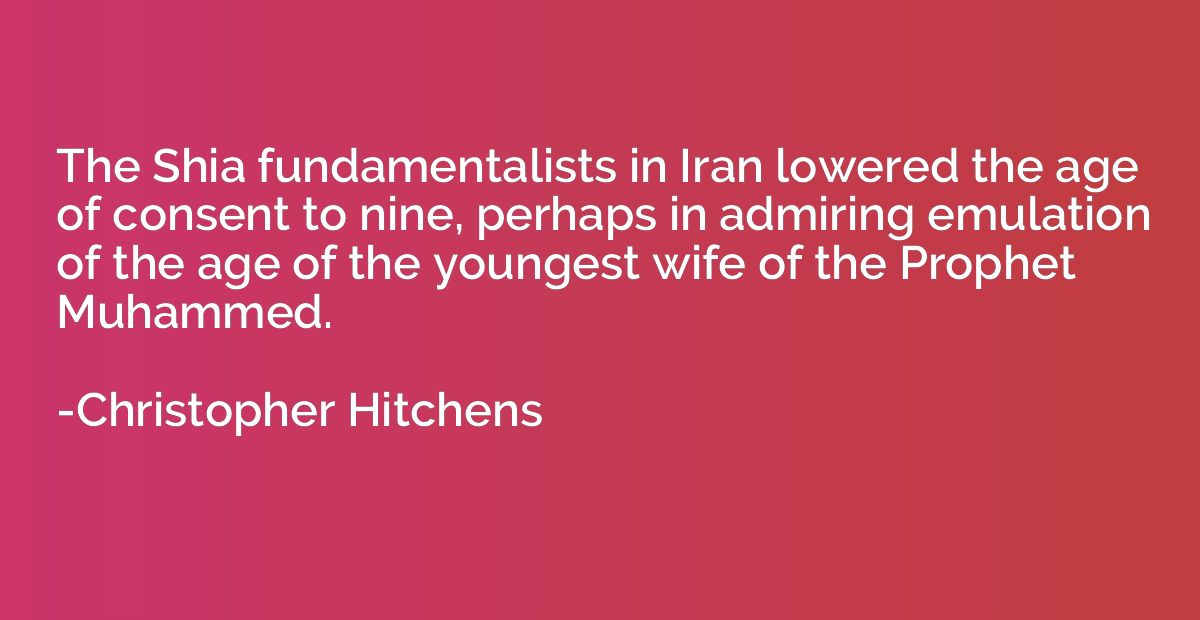
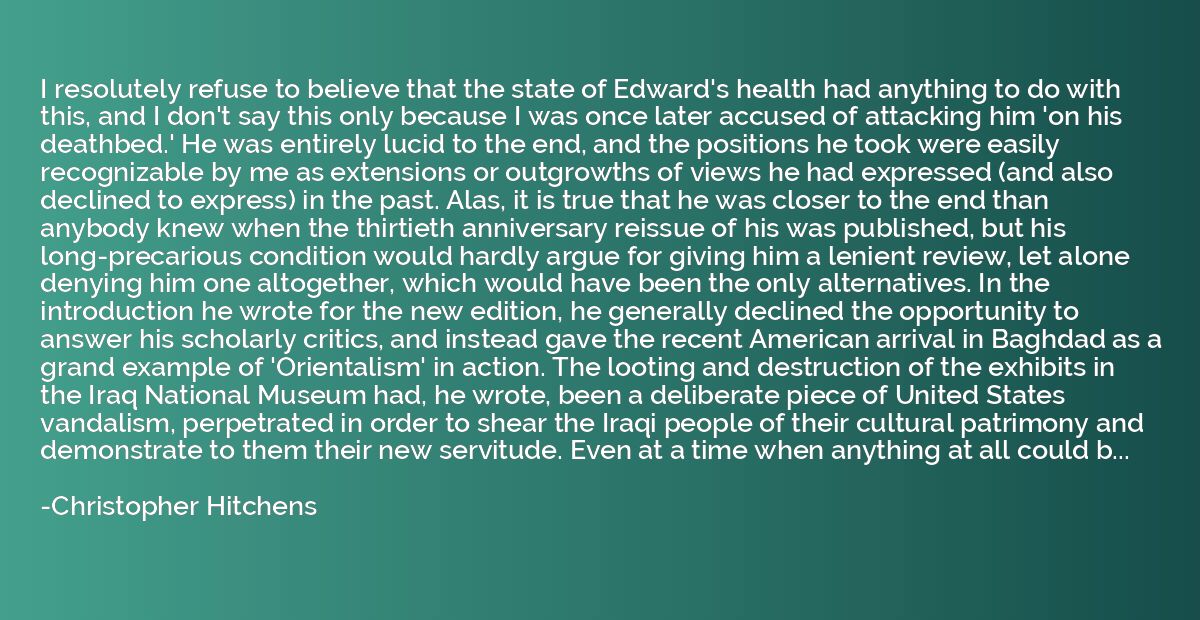
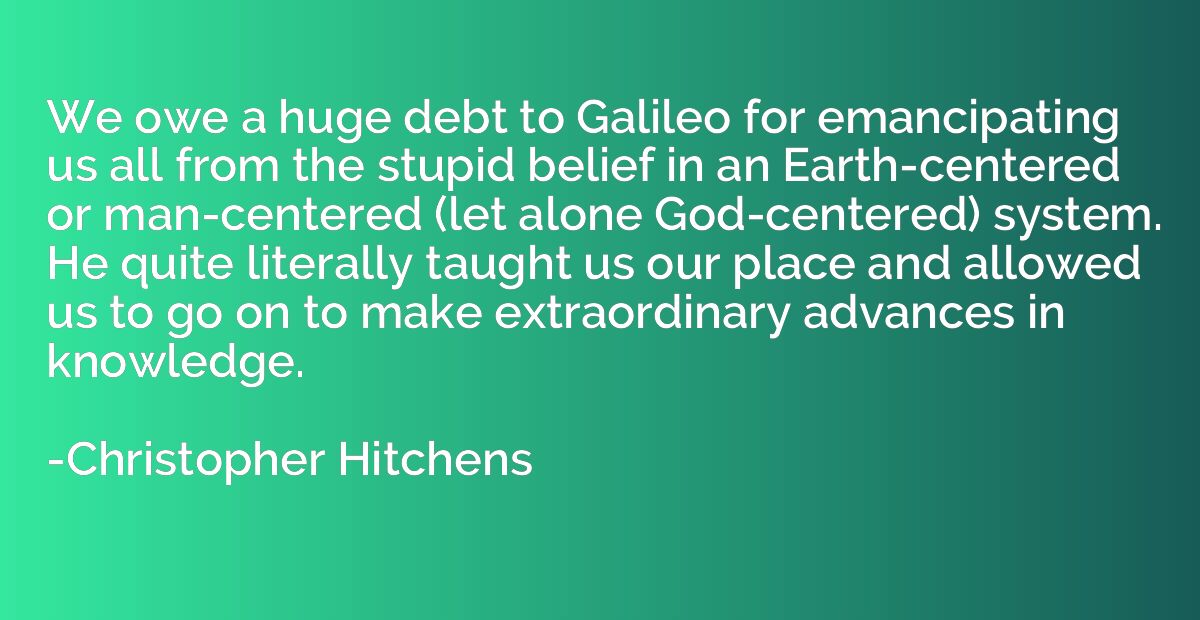
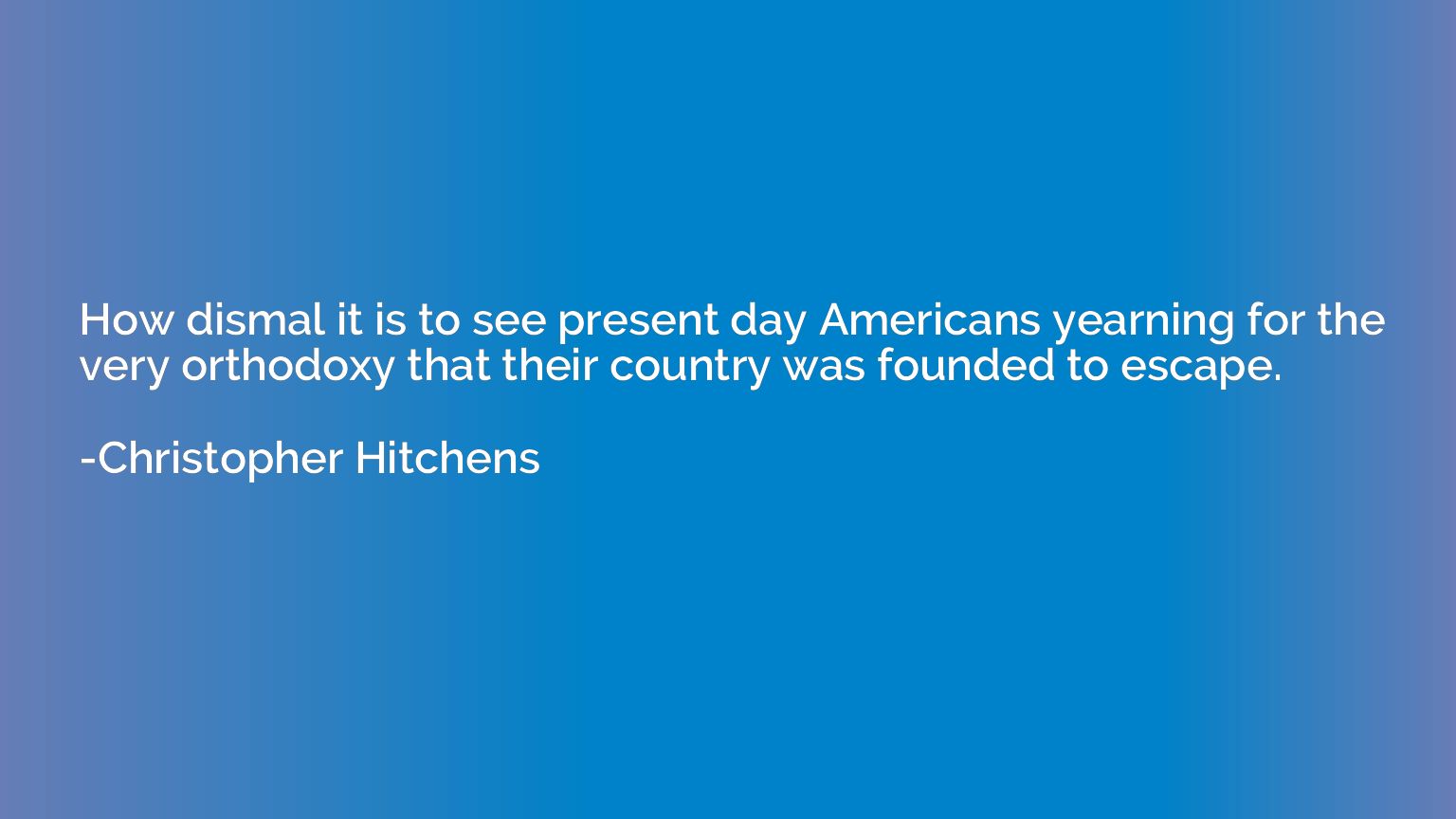
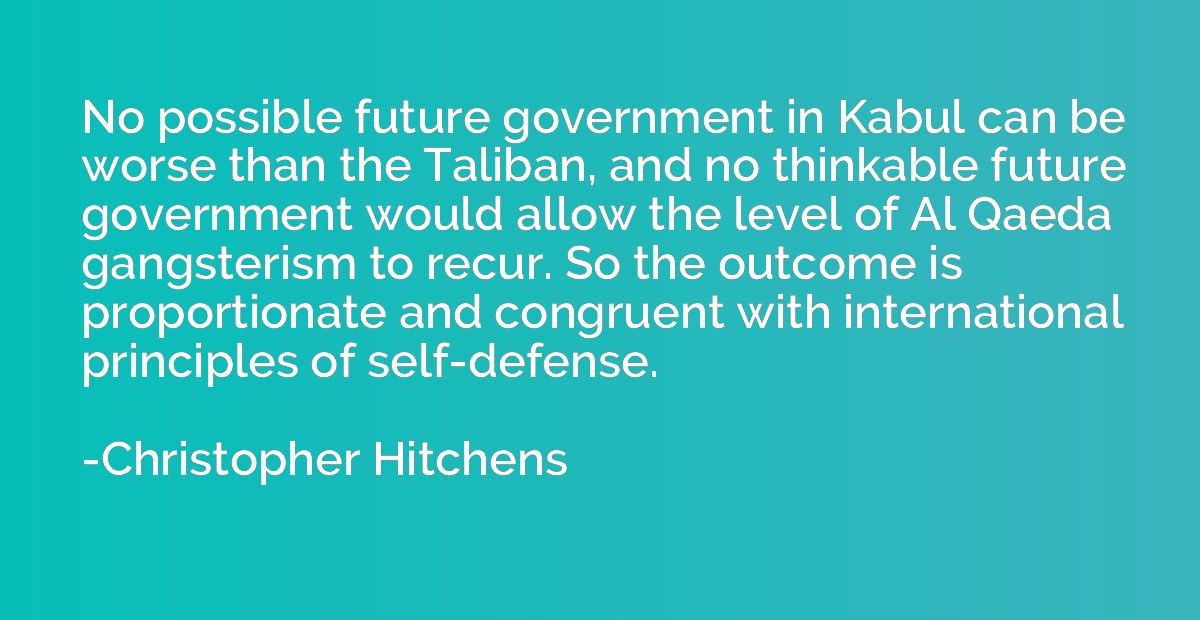
![That war [Bosnian war] in the early 1990s changed a lot for](https://quotation.io/quotes/war-bosnian-war-early-1990s-changed-lot.jpg)
